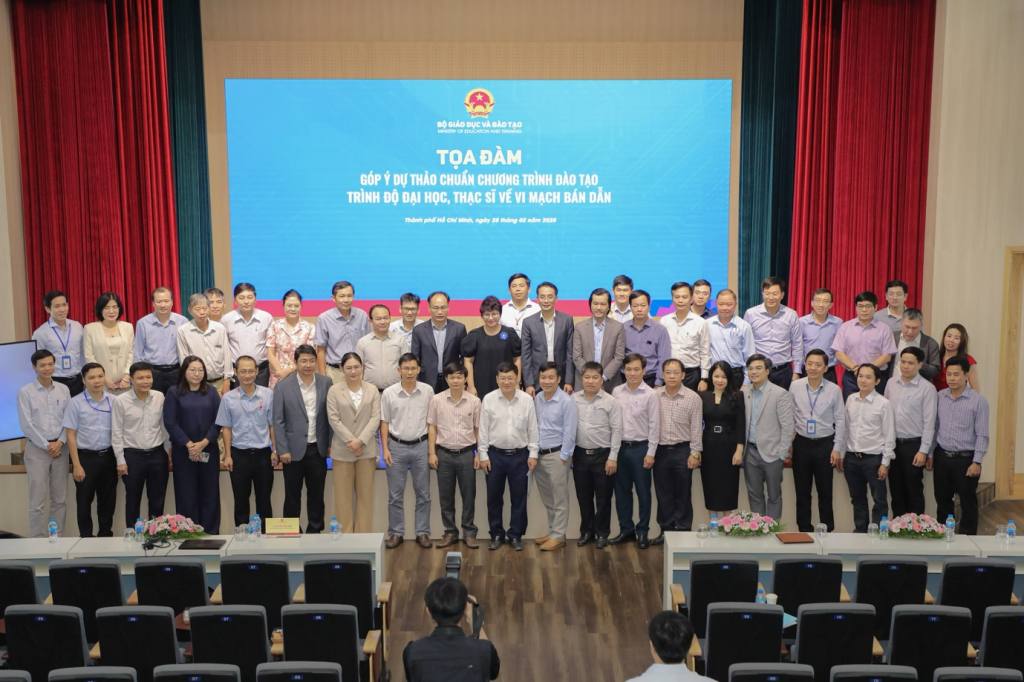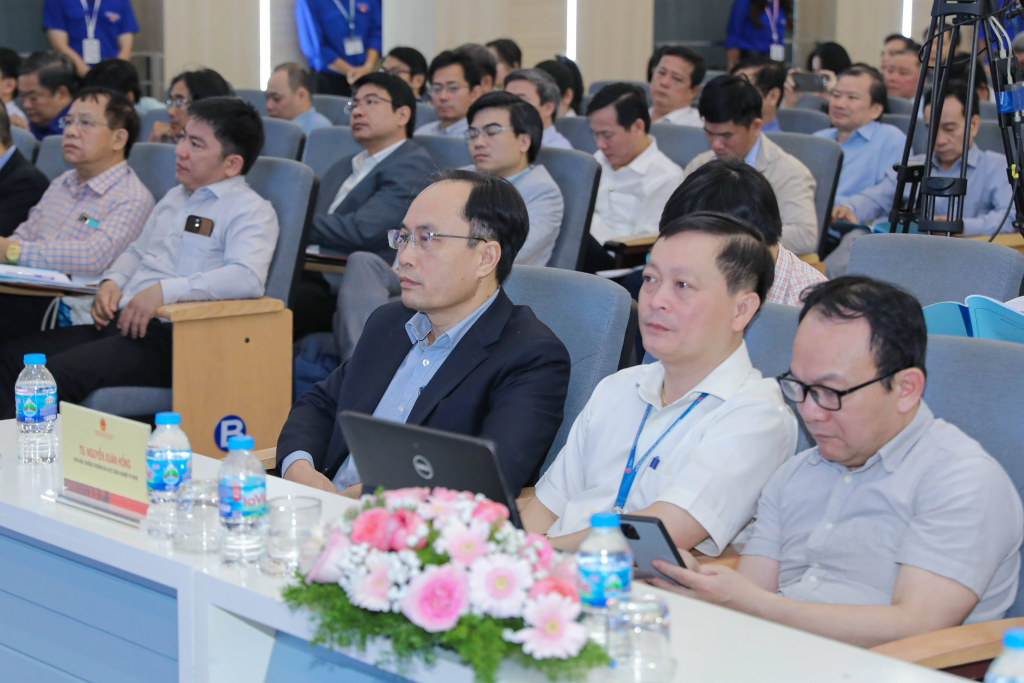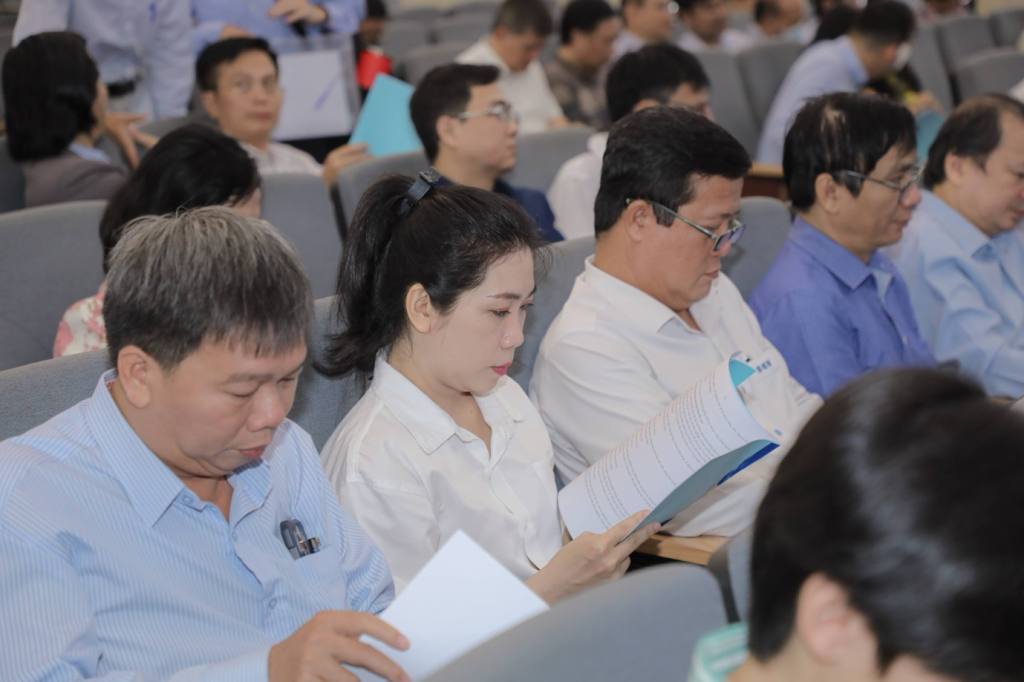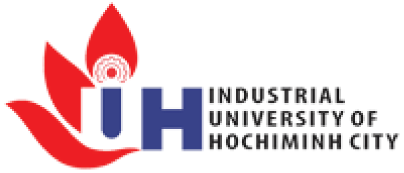Seminar on Draft Standards for Undergraduate and Master's Training Programs in the Semiconductor Industry 28-02-2025
The semiconductor industry, as the backbone of modern technology, plays a crucial role in global socio-economic and technological development.
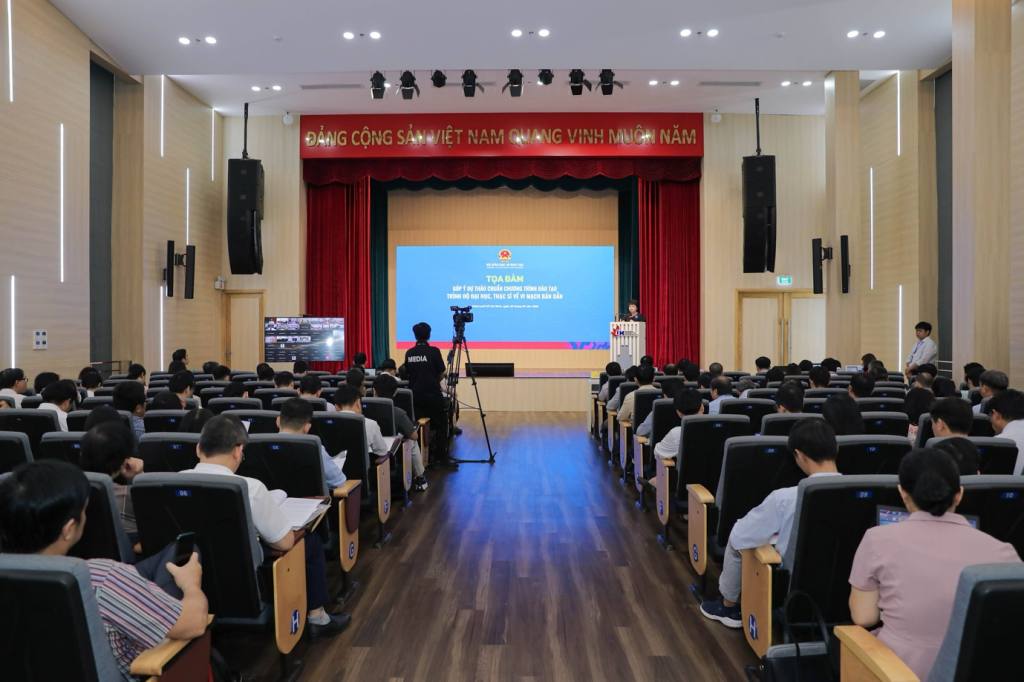
Overview of the seminar
On February 28, the Ministry of Education and Training (MOET), in collaboration with the Industrial University of Ho Chi Minh City, held a "Seminar to Collect Opinions on the Draft Standards for Undergraduate and Master's Training Programs in Semiconductor Microchips." This event was organized under Plan No. 1758/KH-BGDDT dated November 27, 2024, by the Ministry of Education and Training to implement Decision No. 1018/QD-TTg dated September 21, 2024, issued by the Prime Minister, which approved the Strategy for the Development of Vietnam's Semiconductor Industry to 2030 with a vision to 2050. It also aligns with Decision No. 1017/QD-TTg, dated September 21, 2024, approving the "Human Resource Development Program for the Semiconductor Industry to 2030 with an Orientation to 2050."
Following the Prime Minister's directive, the Ministry of Education and Training has established an Advisory Council to develop standards for higher education training programs in semiconductor ICs. These standards serve as a foundation for higher education institutions to design and implement training programs. They also provide a basis for developing pilot programs, second-degree programs, and intermediate training programs related to semiconductor ICs.
The seminar was attended by notable participants such as Ms. Nguyen Thu Thuy – Director of the Department of Higher Education; Mr. Nguyen Anh Dung – Deputy Director of the Department of Higher Education; Mr. Nguyen Thanh Tuyen – Deputy Director of the Department of Information and Communication Technology Industry; and Prof. Dr. Chu Duc Trinh – Rector of the University of Technology, Vietnam National University, Hanoi.
Representing the host organization (IUH) were Assoc. Prof. Dr. Huynh Trung Hieu — Vice Chairman in charge of the School Council and Vice Rector of the University — and Dr. Nguyen Xuan Hong, Vice Rector of the University.
Notably, the seminar saw the participation of representatives from functional departments responsible for managing training activities related to semiconductor circuits from nearly 200 higher education institutions. More than 100 delegates attended in person, while over 100 joined online. The event also welcomed experts and employers, who are managers from various semiconductor industry enterprises. Additionally, several press agencies were present to cover the event.
Speaking at the event, Ms. Nguyen Thu Thuy, Director of the Department of Higher Education, stated: "This seminar is part of the implementation of the Prime Minister's key decisions on Vietnam's semiconductor industry development strategy to 2030, with a vision to 2050, as well as the human resource development program for the semiconductor industry. This discussion provides an opportunity for us to continue exchanging ideas and contributing to the draft training program standards."
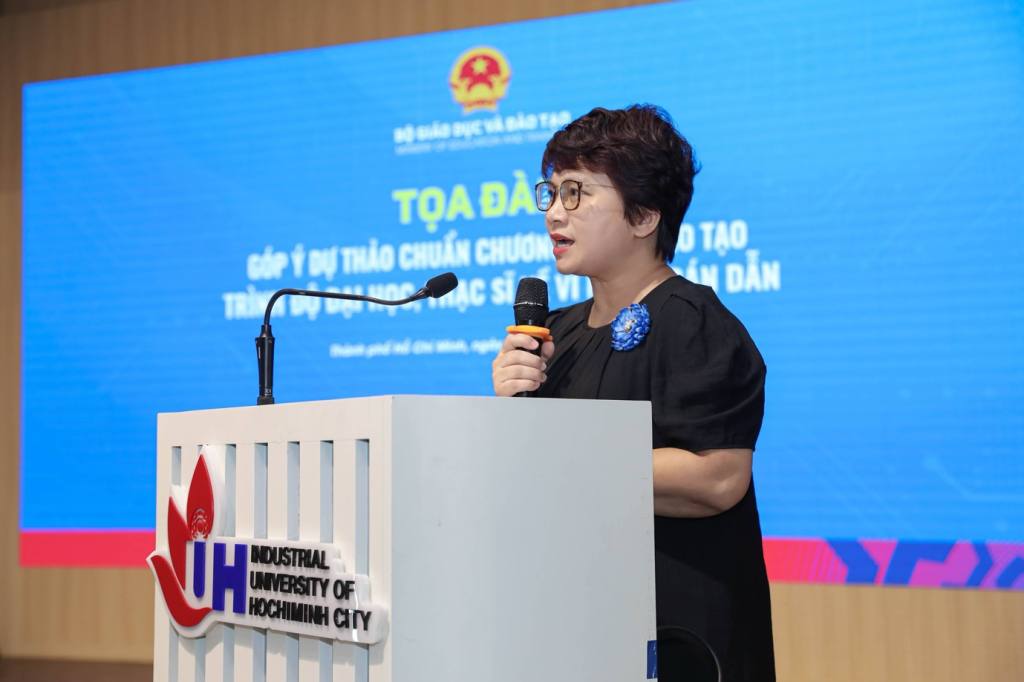
Ms. Nguyen Thu Thuy, Director of the Department of Higher Education, delivered a speech at the seminar.
Assoc. Prof. Dr. Huynh Trung Hieu expressed gratitude to the Ministry of Education and Training for trusting the Industrial University of Ho Chi Minh City (IUH) to host the seminar on contributing opinions to the semiconductor industry training program. He shared: "The Industrial University of Ho Chi Minh City is a leading institution under the Ministry of Industry and Trade in training high-quality human resources. Over the years, the university has carried out comprehensive efforts to improve and enhance its training programs. We are honored to welcome the leaders of the Ministry of Education and Training and experts from around the world to this important discussion on the draft standards."
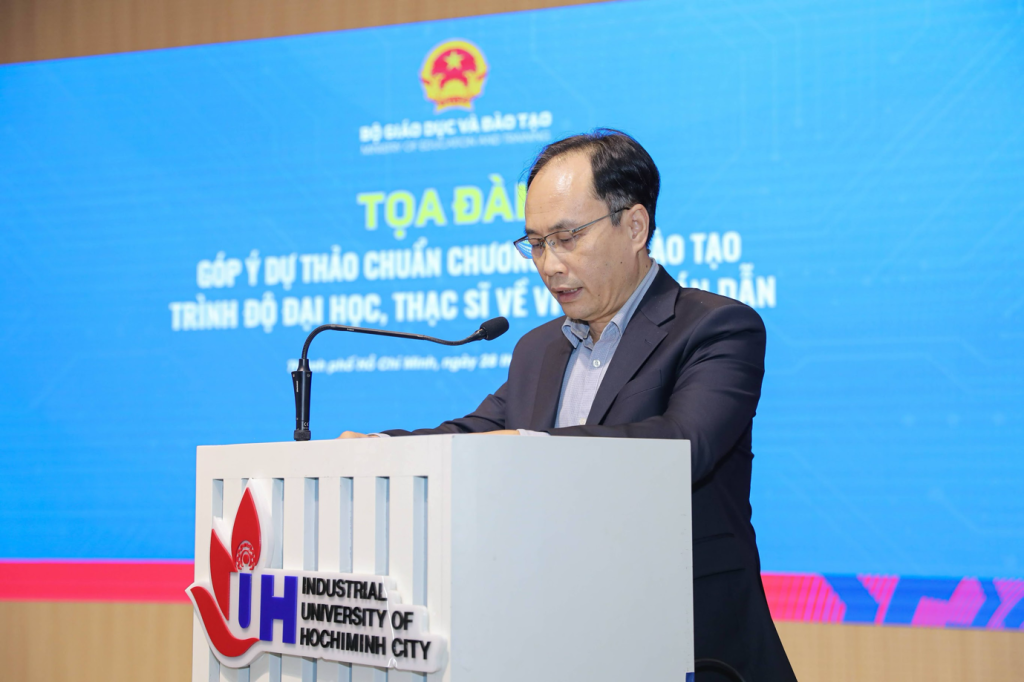
Assoc. Prof. Dr. Huynh Trung Hieu, Vice Rector of the University, delivered a speech at the seminar.
Speaking at the event, Prof. Dr. Chu Duc Trinh, Rector of the University of Technology (Vietnam National University, Hanoi) and Chairman of the Advisory Council for developing undergraduate and master's training programs in semiconductor ICs, emphasized that the training program standards serve as a foundation for universities to design and implement semiconductor IC training programs.
This standard is also the foundation for designing and implementing major-minor, dual degree or interdisciplinary training programs on semiconductor ICs.
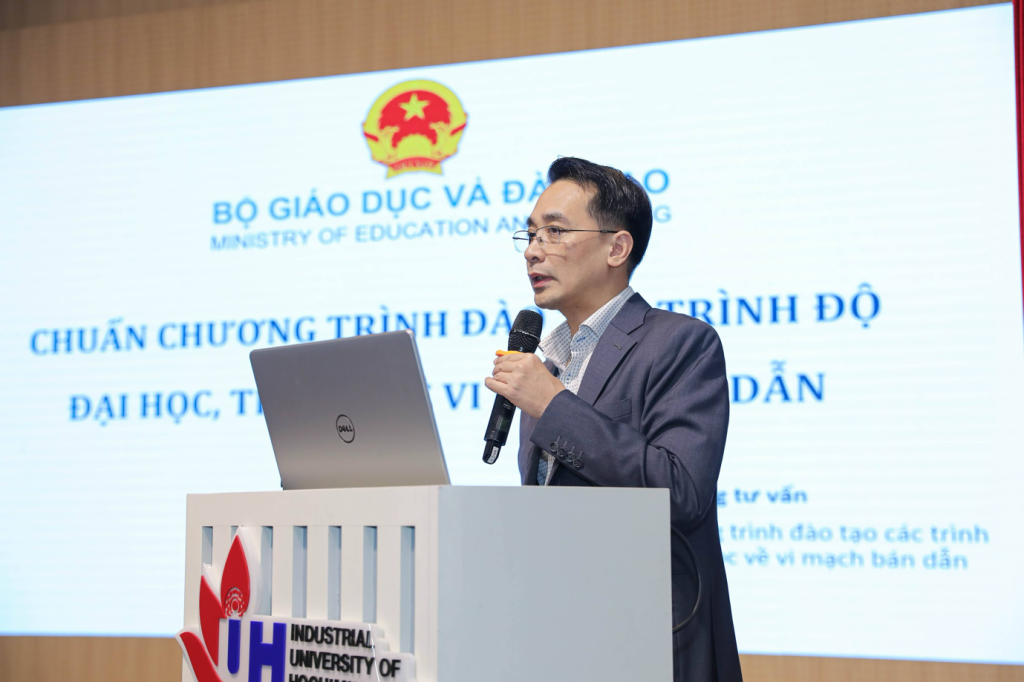
Prof. Dr. Chu Duc Trinh - Rector of the University of Technology (Hanoi National University) presented on the draft training program.
During the discussion session, more than 20 draft comments were contributed by universities from across the North-South region. Representatives from units using this resource also actively participated. From an educational perspective, school representatives provided feedback on various aspects, comprising the training program framework, duration, input and output standards for bachelor's, engineering, and master's programs. Meanwhile, representatives from the business sector offered insights on resources for specialized training in design, packaging, and manufacturing, aiming to meet both domestic and international standards.
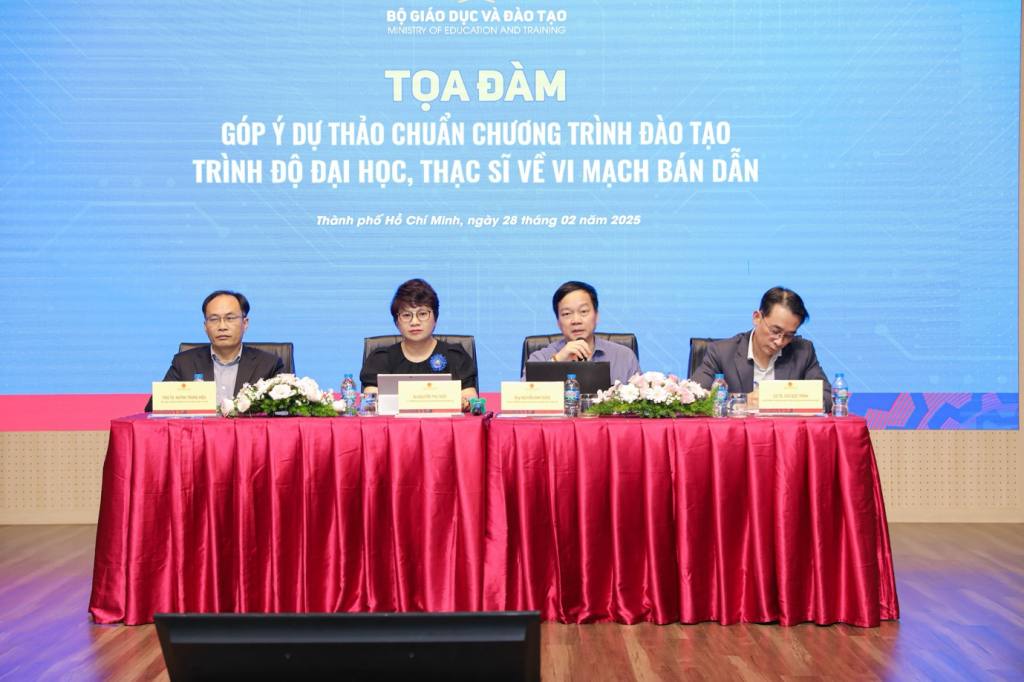
The discussion session was moderated by Ms. Nguyen Thu Thuy, Director of the Department of Higher Education; Mr. Nguyen Anh Dung, Deputy Director of the Department of Higher Education; Prof. Dr. Chu Duc Trinh, Rector of the University of Technology – Hanoi National University; and Assoc. Prof. Dr. Huynh Trung Hieu, Vice Chairman of the School Council and Vice Rector of the university.
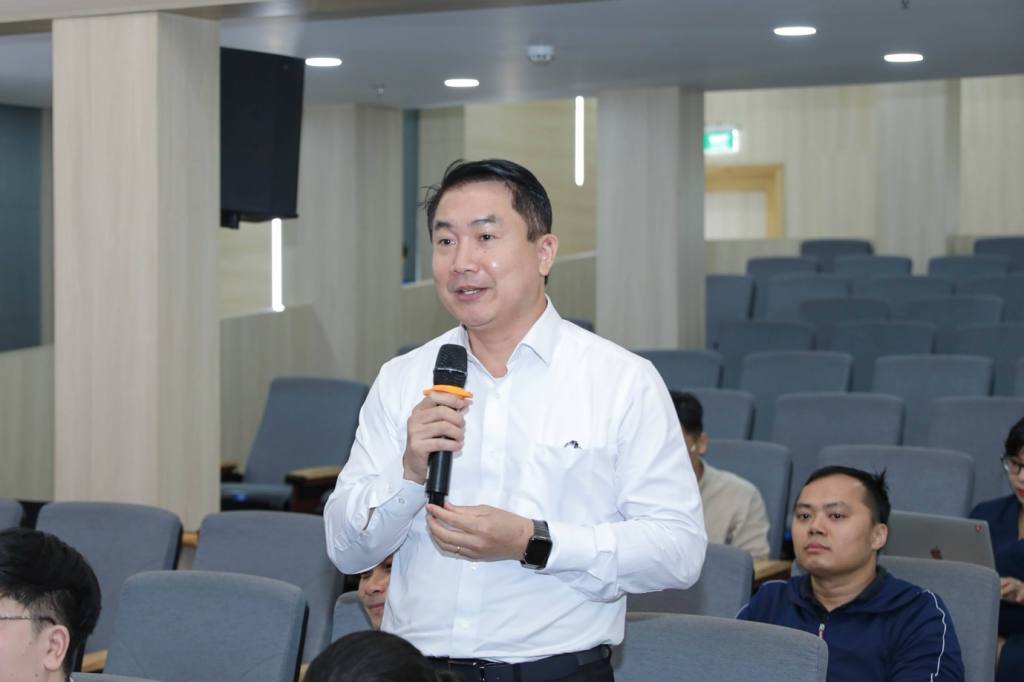
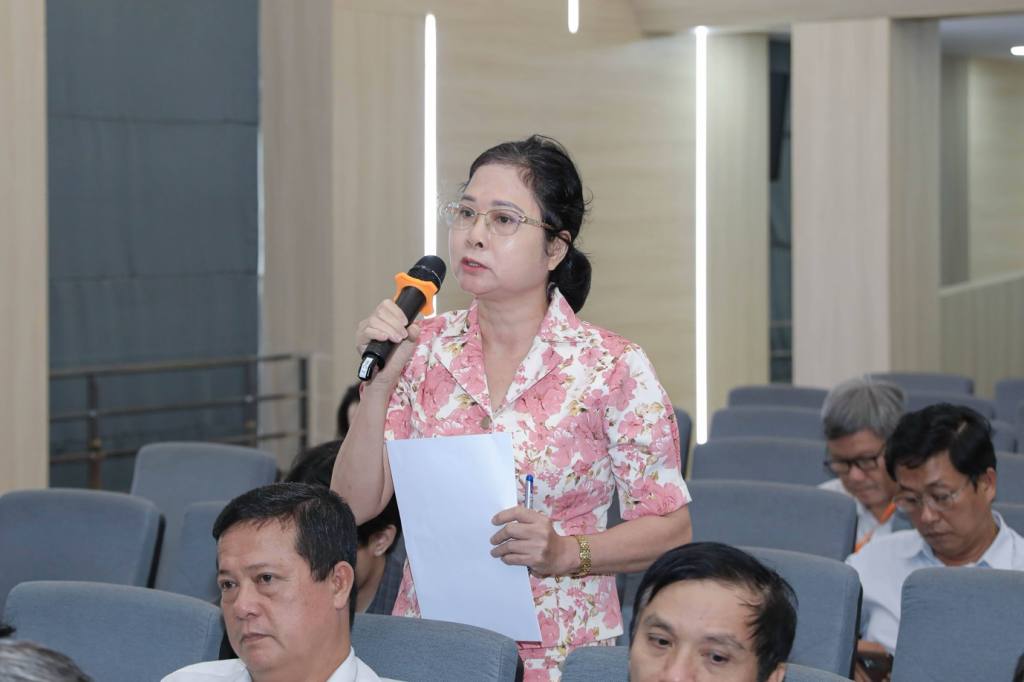
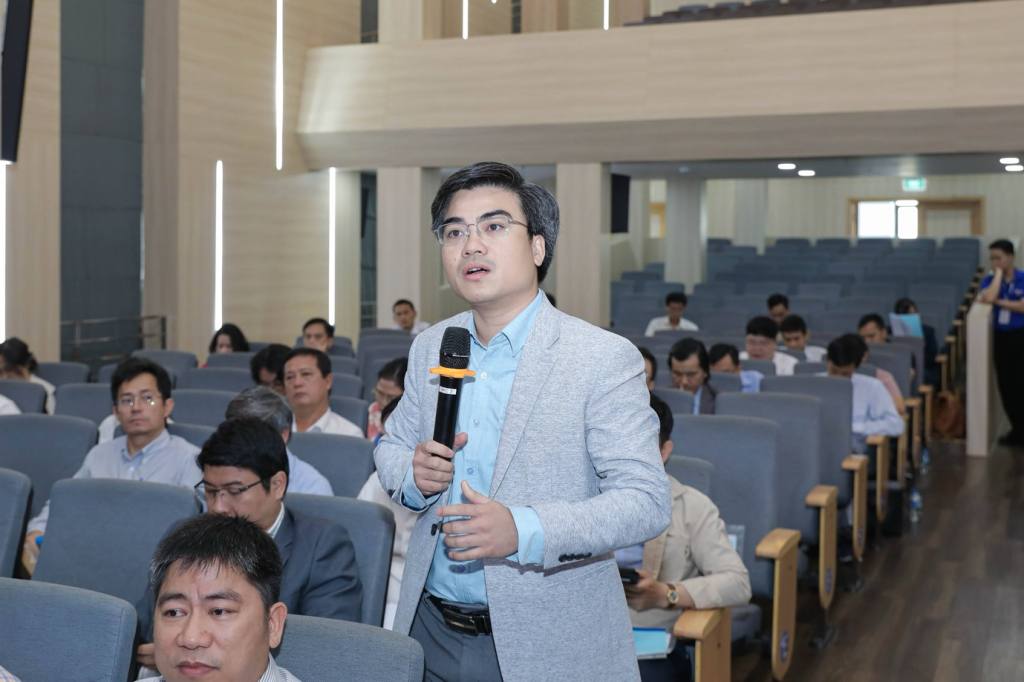
Delegates participated in commenting and discussing the draft
"The goal of the semiconductor IC training program is to provide both broad and specialized knowledge, focusing on key stages in the semiconductor industry value chain, comprising integrated equipment design and manufacturing, fabless design, IC manufacturing processes, and the production of equipment and tools," Mr. Trinh added.
Currently, 75 training majors support human resource development in the semiconductor industry, among which are materials science, artificial intelligence, computer science, electrical, electronics, telecommunications engineering technology, and mechanical engineering.
Graduates of semiconductor IC training programs receive a bachelor's degree, engineering degree (Level 6 or Level 7), or a master's degree.
Semiconductors are a vital industry, playing a crucial role in the advancement of high technology and the global economy. With the goal of becoming a semiconductor manufacturing and development hub, Vietnam is gradually establishing its position in the highly competitive global semiconductor market. Achieving this goal requires the essential contribution of high-quality human resources.
At the end of the seminar, Ms. Nguyen Thu Thuy, Director of the Department of Higher Education, expressed her gratitude to the delegates and experts for their enthusiastic and valuable contributions. She stated that the feedback will be compiled to finalize the standards for the semiconductor industry training program, ensuring both feasibility and alignment with current practical resource needs.
Photos of the seminar:
